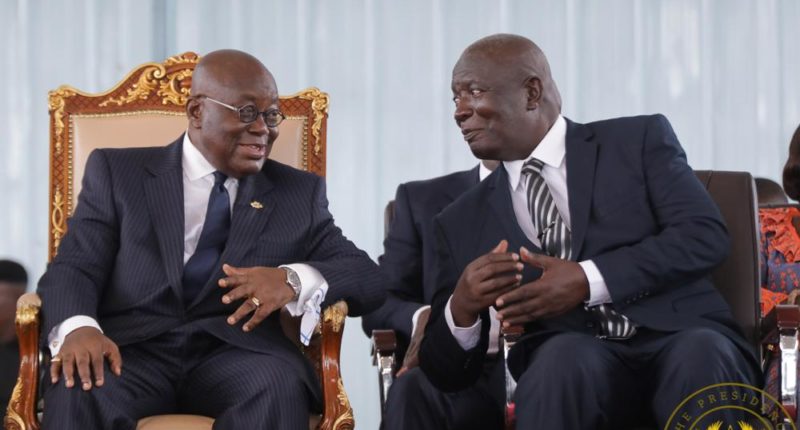The President of the Republic, Nana Addo Dankwa Akufo-Addo, says no effort is being made to suppress freedom of expression in Ghana, as the continuing vitality of the Ghanaian media and the intense diversity of the public discourse remain some of the most internationally admired traits of Ghanaian democracy.
According to President Akufo-Addo, “Ghanaians are, today, as they have been doing for much of the 4th Republic, able to give boldly and freely their feedback on policies and programmes of government; civil society organisations are able to interrogate fearlessly government actions and positions, compare them to global best practices, and offer views and critiques aimed at complementing the efforts of government; and the political opposition is able to raise dissent openly, and canvass without intimidation for alternative viewpoints.”
President Akufo-Addo made this known on Monday, 9th September, 2019, when he delivered a speech at the 2019 Bar Conference of the Ghana Bar Association, in Takoradi, in the Western Region.
With the Constitution of the 4th Republic guaranteeing freedom of expression, including freedom of the press and other media, as a fundamental human right, and making elaborate provisions to protect the freedom and independence of the media, the President stated that the repeal of the Criminal Libel Law in 2001, when he was Attorney General represents one of the high points of his public career.
“In my time as President, the Right to Information Act, whose passage had, hitherto, become a taboo, was finally enacted by Parliament. My attachment to the vital nature of freedom of expression in promoting national progress and security has not changed since I became President,” he added.
Nonetheless, he stated that there is the need for continuous training, self-regulation and an insistence on acceptable media ethics and journalistic standards by media houses, practitioners and their organizations, as part of the process of installing a culture of accountable governance, requiring high standards and professionalism in the Ghanaian media.
This, he said, is the one of the surest ways of addressing the current shortcomings and ills of the media landscape.
Deliberate misinformation campaigns, President Akufo-Addo stressed, have now gained added currency, with the proliferation of media channels, including social media.
Additionally, he noted that a major threat to the integrity of the news world is the publication of unverified claims, in the haste to be first to break so-called “news”.
“In such cases, even after the public has been misinformed, and the true facts are later made known, media often chickens out of an honest open acknowledgement that “we erred.” The response is often to refuse to apologise or sweep it under the carpet, and move on to the next big story,” the President said.
He continued, “Politicians are not the only persons who make mistakes. Media practitioners, like all human beings, can also make mistakes, and, when they do, they should have the humility to acknowledge their error, and not have their misdeeds atoned under the guise of ‘media freedom’. Irresponsible media practice is an abuse of freedom of expression, not its manifestation”.
Describing the killing of Ahmed Suale as “a sad and unfortunate moment for us all”, President Akufo-Addo noted that “it was equally sad and unfortunate, when this heinous act was described, without any evidence, as an attack on media freedom.”
Crime, he said, is crime, and the law enforcement agencies are required to ensure that the perpetrators of crime are rapidly apprehended and prosecuted.
“Strenuous efforts are being made to find the killer or killers of Ahmed Suale, who will be found and made to face justice,” he added.
The media, the President added, has immeasurable power to build up the confidence and values of Ghanaian society and its institutions.
“I call on Ghanaian media practitioners to take a second look at the power they wield, and the responsibility they owe society, with a view to ensuring that they do not sacrifice integrity and the future of our society for today’s headline or breaking news,” he said.





